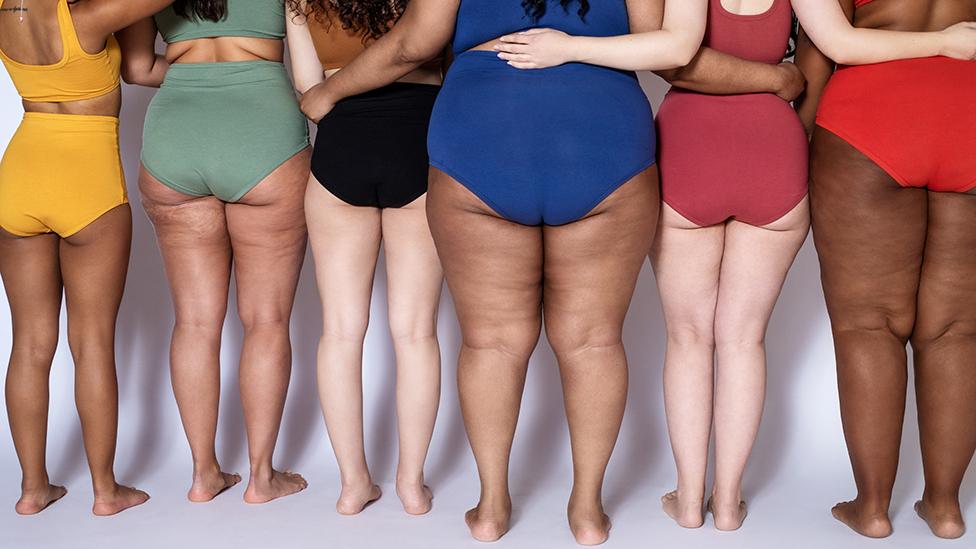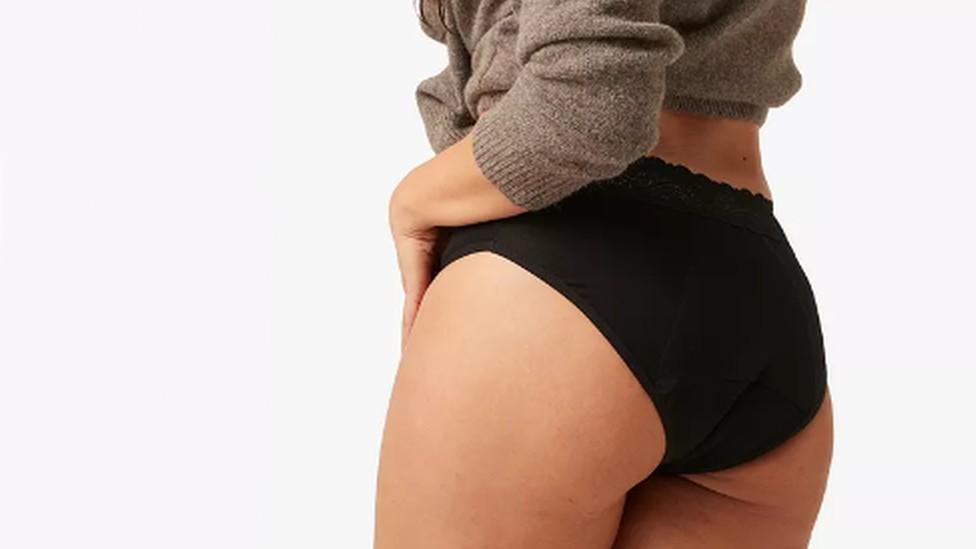Period pants could get cheaper after VAT is removed
- Published

Period underwear could be set to fall in price after the government said the product would no longer be subject to value added tax (VAT) from 1 January.
Removing the tax should make the pants, seen as a greener alternative to tampons and sanitary towels, up to £2 cheaper per pair, the Treasury said.
The move follows a campaign by retailers and charities for the tax to be lifted.
Other period products such as tampons and pads have been exempt since 2021.
But period pants, which have become increasingly popular over the last decade, were classified as garments rather than period products, and so were still subject to the tax.
Following the "Say Pants To the Tax" campaign backed by retailer Marks & Spencer and period pants brand Wuka last year, the chancellor announced in his Autumn Statement that the tax would be lifted for period underwear too.
However some retailers cut the price of their period pants when they joined the campaign, saying they would absorb the VAT cost themselves. One of those, supermarket chain Tesco, said the price of the underwear would therefore not fall further in its stores as a result of the tax change.
VAT is charged at 20% on most products sold to consumers, but some essential products, including food and children's clothes are exempt.
Victoria McKenzie-Gould, corporate affairs director at M&S, said the move would level the playing field in the market for period products.
"Nearly 25% of women cite cost as a barrier to using period pants so we know the new legislation that comes into effect from today will make a big difference to women's budgets across the UK," she said.
The underwear, which is absorbent, washable and reusable, is seen as more environmentally friendly than single-use products such as menstrual pads. They can also save money in the longer run, depending on their initial cost.
Period underwear prices range from around £6 to £18 per pair and are available in many outlets including high street fashion chains and supermarkets.
"It's only right that women and girls can find more affordable options for what has become an essential and environmentally friendly product," financial secretary to the Treasury, Nigel Huddleston, said.
Laura Coryton, founder of social enterprise Sex Ed Matters, said levels of period poverty - not having enough money to access period products - were "skyrocketing" in the UK, but that the move to reduce VAT on period underwear would make a huge difference.
It could also help reduce the stigma around periods which prevents some girls attending school, she said.
Retailers and brands that backed last year's campaign to make period underwear zero-rated for VAT pledged they would pass on the tax cut in full to customers.
Several, including Tesco, John Lewis and M&S, announced at the time that they would start covering the cost of the tax themselves back, bringing prices down.

What to do if you can't afford sanitary products
Free sanitary products are available at some leisure centres, libraries and community centres.
In England, Wales and Northern Ireland schools and colleges carry free products
In Scotland, councils and education providers are legally required to provide sanitary products and you can find the nearest location through the PickupMyPeriod app.
The NHS offers free period products to hospital patients.
Many food banks provide free toiletries and essentials including menstrual products.
Some supermarkets such as Morrisons also give free sanitary products at some of their stores.

Related topics
- Published20 November 2023

- Published10 August 2023

- Published26 August 2023

- Published2 September 2023
